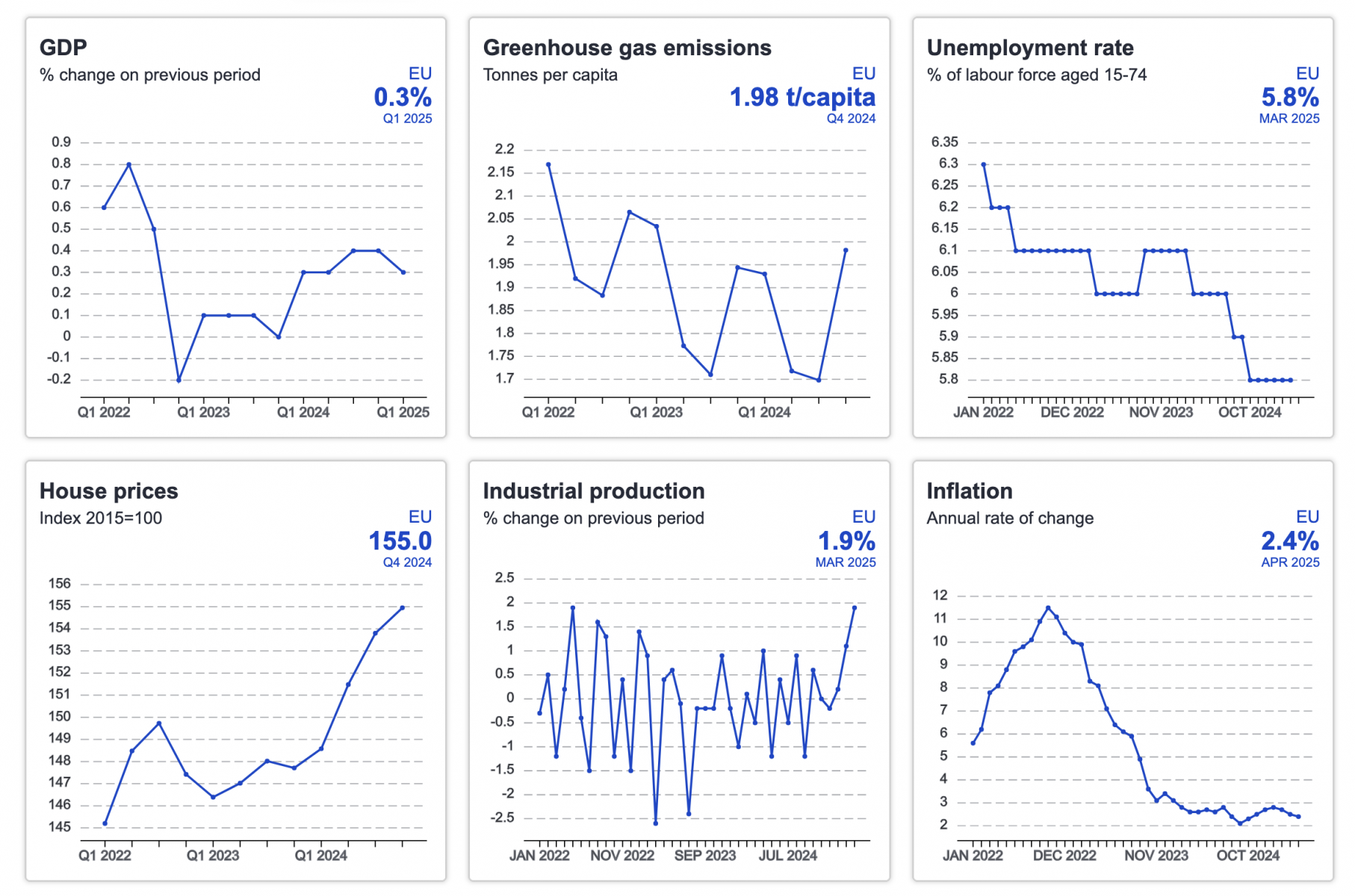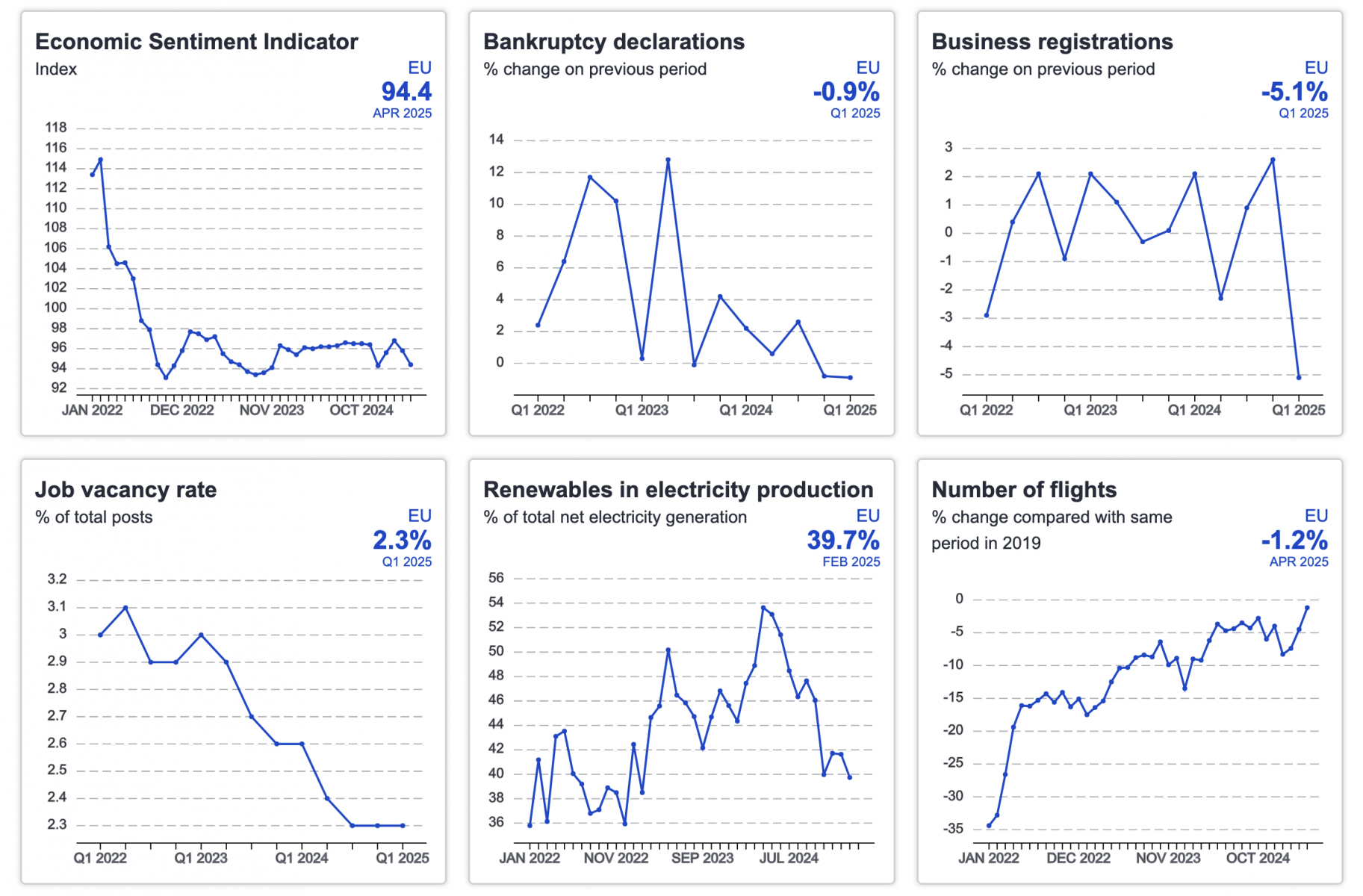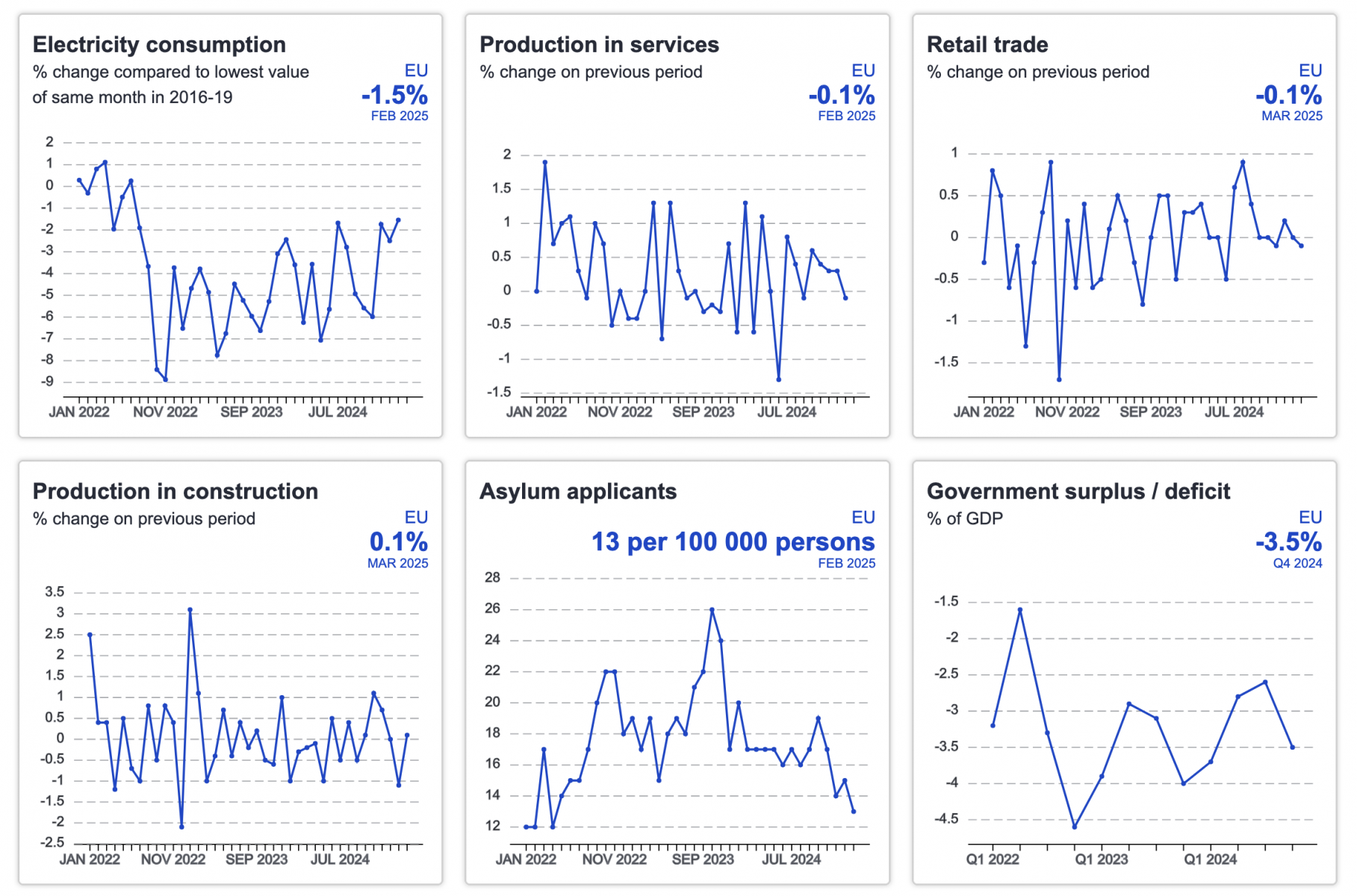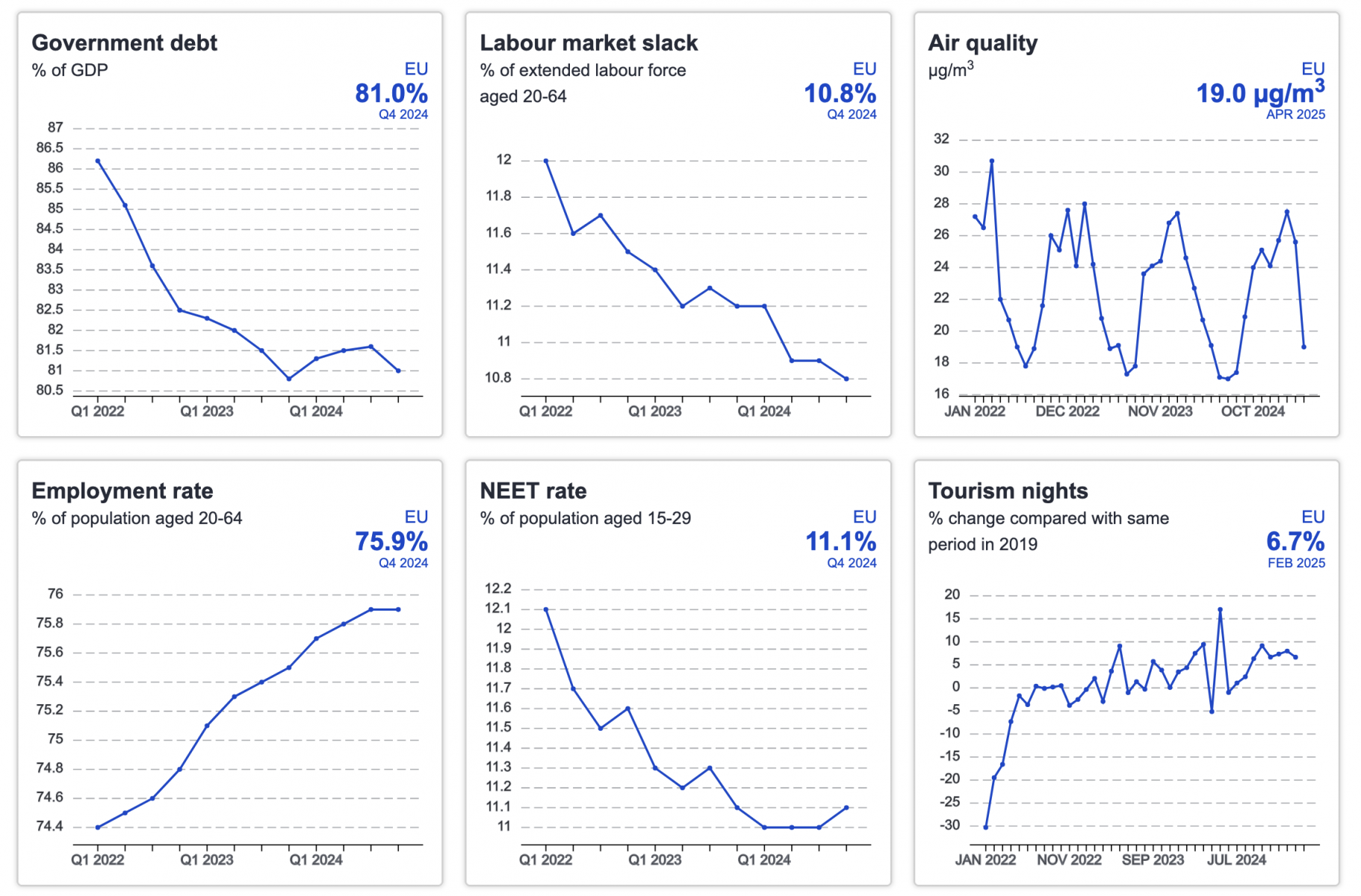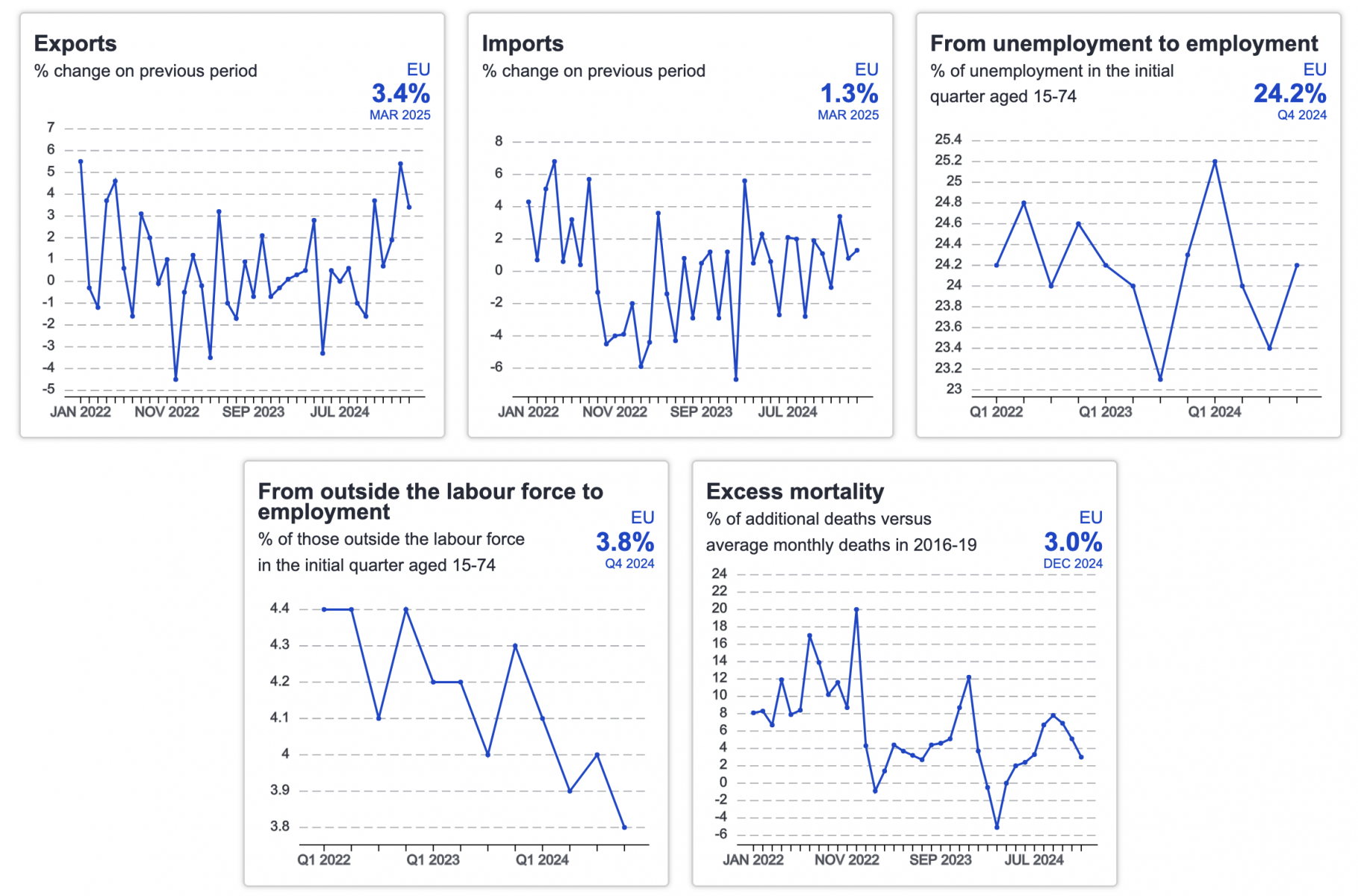EU economy maintains moderate growth amid mixed business and environmental signals
The European Union economy continues on a path of moderate and stable growth, with GDP expanding at a steady pace for the sixth consecutive quarter. This sustained economic activity is supported by historically low and stable unemployment rates and a continued decline in inflation, reflecting an overall resilient macroeconomic environment.
Despite these positive trends, some underlying indicators point to softening momentum. While the number of bankruptcy declarations has declined, economic sentiment has weakened further and the rate of new business registrations has slowed, suggesting caution among entrepreneurs and investors.
Sectoral performance has been uneven. Industrial production showed improvement for the third consecutive month, indicating a gradual recovery in manufacturing. Retail trade remained largely stable, whereas the services sector experienced a contraction in output. On the fiscal front, both the government deficit and gross public debt as a share of GDP declined, signalling a strengthening in public finances across the bloc.
Environmental indicators offered a mixed outlook. Although air pollution levels in EU capitals have fallen, greenhouse gas emissions increased during the reporting period. Monthly electricity consumption across the EU also declined, yet the share of electricity generated from renewable sources unexpectedly dropped, raising questions about the consistency of the transition to cleaner energy.
Overall, the EU economy remains on a modest upward trajectory, but shifting business conditions and environmental challenges underscore the need for continued policy attention to ensure long-term stability and sustainability.







